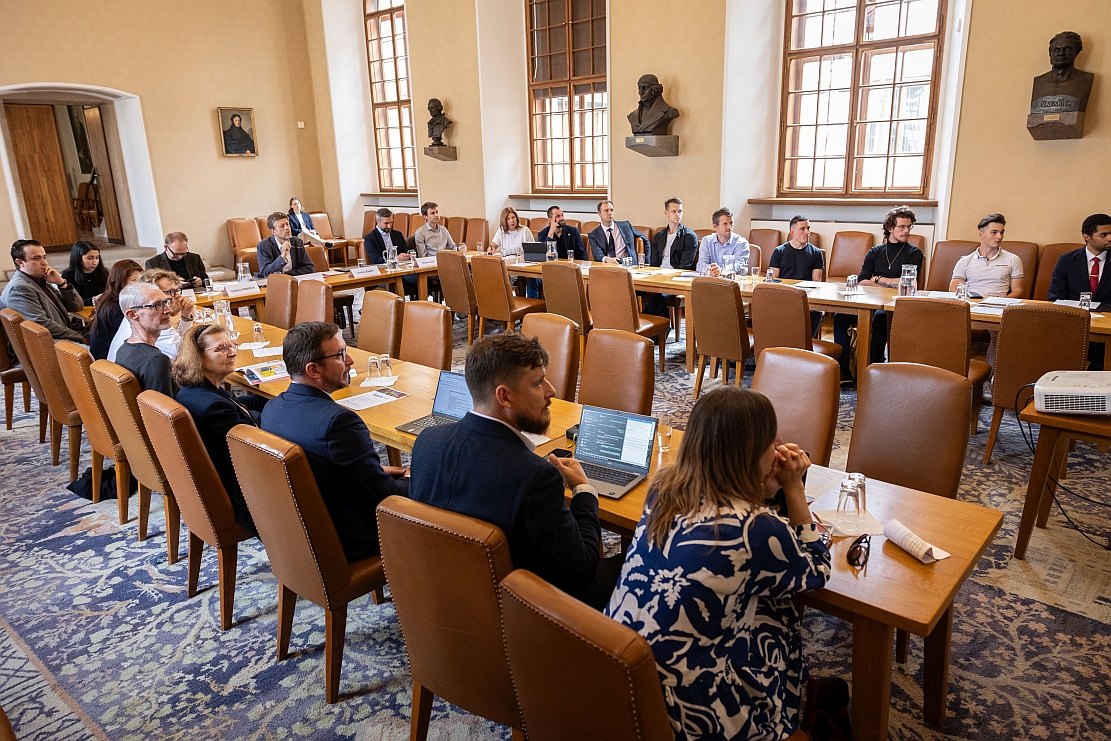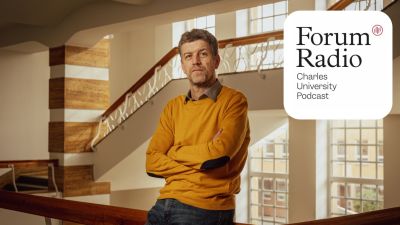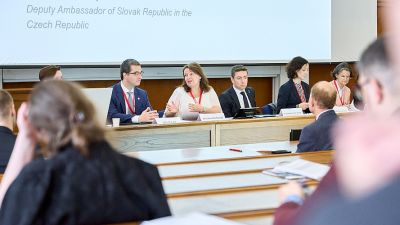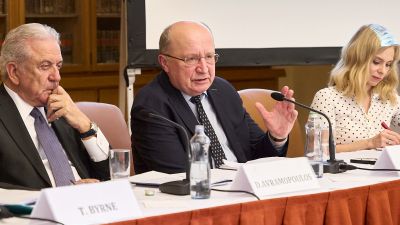Charles University hosts a great many events but last week saw one that was truly exceptional: MIT Global Experiences. Held in the Hall of Patriots at the historic Carolinum, the conference brought together representatives from academia, including Justin Leahey (the director of MIT International Science and Technology Initiatives or MISTI). Other invited guests and speakers included science innovators, experienced venture capitalists and successful students who, during their studies, launched start-ups in the fields of medicine and the natural and social sciences. The event, which lasted almost two hours, was nothing if not inspiring.
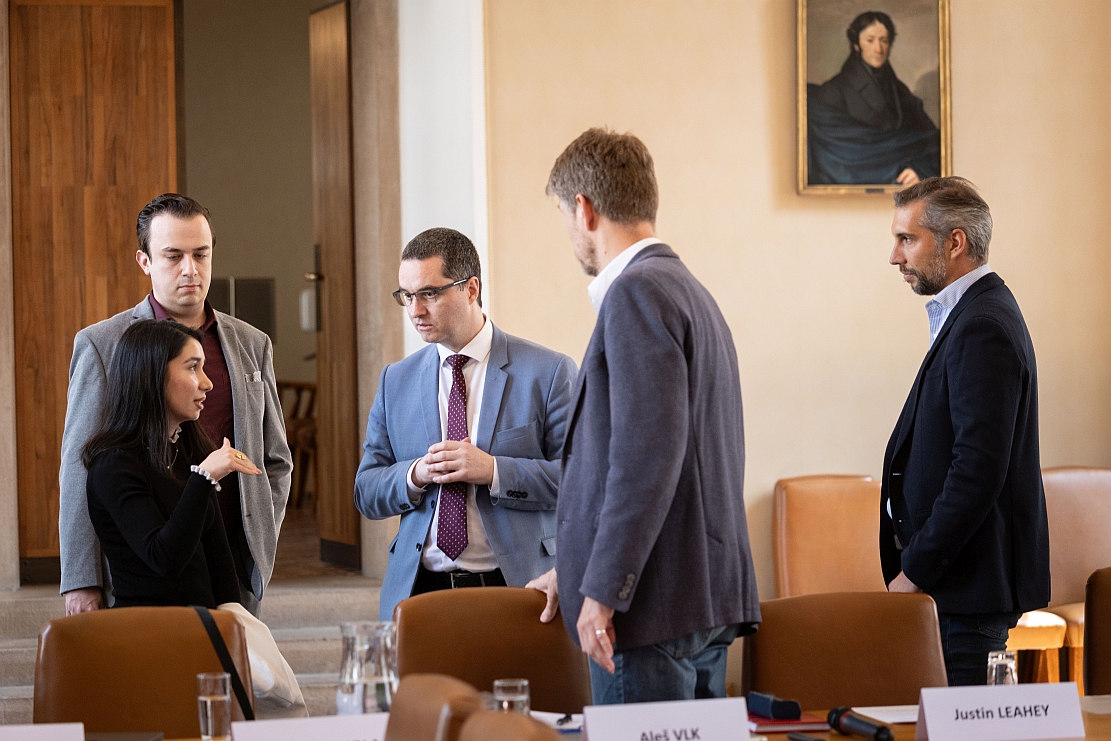
Vice-Rector Jan Polák listens to med school graduate and start-up founder Anora Atakhanová at MIT event at CU.
Every once in a while, there is a science popularisation event that is truly eye-catching and the MIT Global Experiences was one, with both students and staff as well as other representatives attending. Effectively divided into two blocs, the event offered first, an overview of MIT and how, through MISTI, the famous US school regularly funds and supports cooperation with counterparts overseas. It’s head, Justin Leahey, had met with CU’s Rector Milena Králíčková for detailed discussion prior to the conference, to outline possibilities with Charles University, including a planned autumn visit.
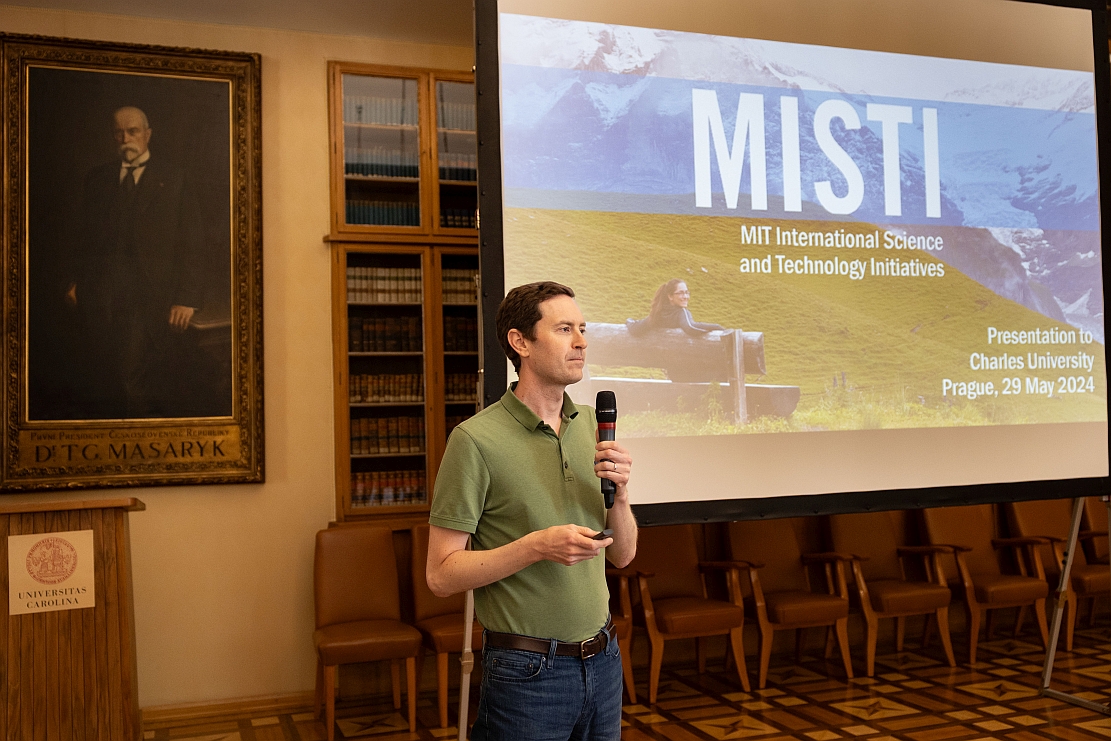
MIT's Justin Leahey, the head of MISTI, discusses his school's mission at CU event.
In his presentation, the MISTI head outlined MIT’s mission in three main points: producing global leaders from among its students, promoting international research collaboration, and finally, connecting with international partners. He placed special emphasis on global seed fund financing bringing partners together.
Justin Leahey emphasised in his presentation that the school funded some 100 such projects annually. MIT has a Czech Republic Seed Fund which was launched in 2021, open to all Czech universities and institutions, parsing 100,000 USD annually among 3-5 projects over a three-year period. The fund was launched with help from IOCB Tech a technology transfer office and subsidiary of the Institute of Organic Chemistry and Biochemistry at the Czech Academy of Sciences. He discussed two successful projects in the past from both science and the humanities. CU has also had a project selected, just recently.
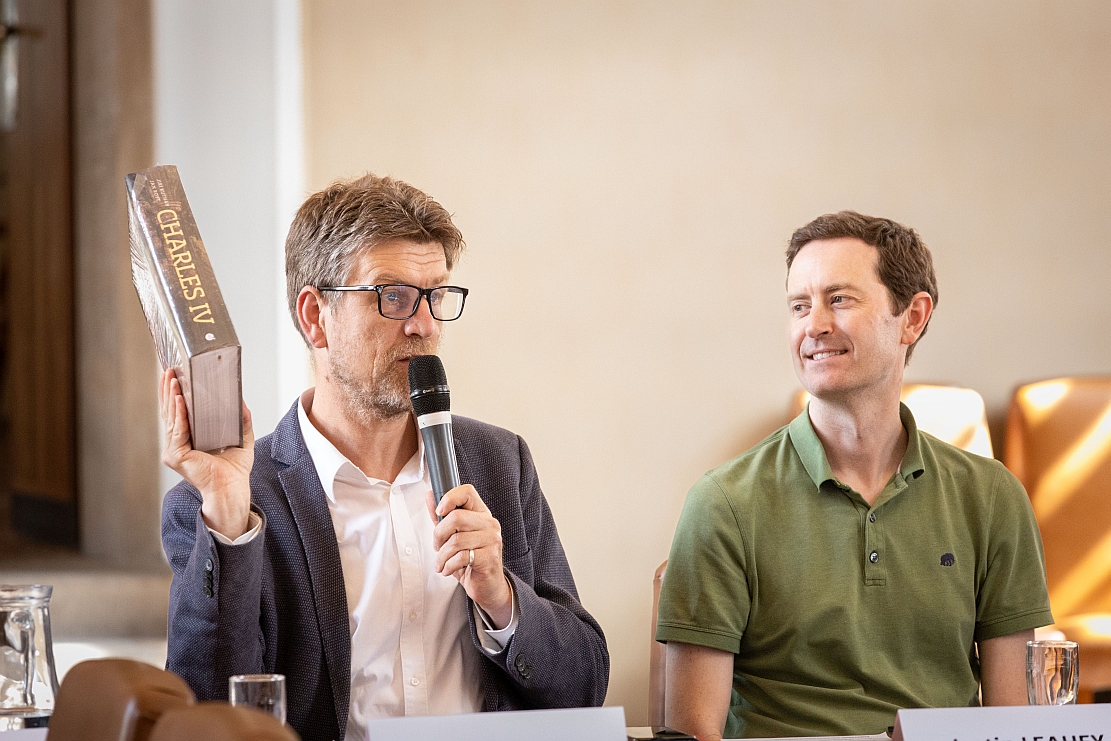
Aleš Vlk (left), a vice-dean at CU and well-known science populariser and expert on policy, often emcees similar such events.
Afterwards, Leahey was happy to talk to Forum magazine.
“This year is the first time that Charles University has won an award, which is very exciting, and [the rector and I] talked about expanding the applicant pool from CU, to try and boost joint-applications from Charles University and MIT researchers. The rector will come as part of a delegation in October. We talked not just about seed fund activity but also Charles University getting a chance to see our entrepreneurship coursework at MIT, which could help CU students in that area.”
He also said more about the global seed fund:
“It is very non-commercially focused, there can be no IP connected to these things, it’s just funding to bring people together and see where that can go. The goal is not to have tech transfer or spinoffs.”
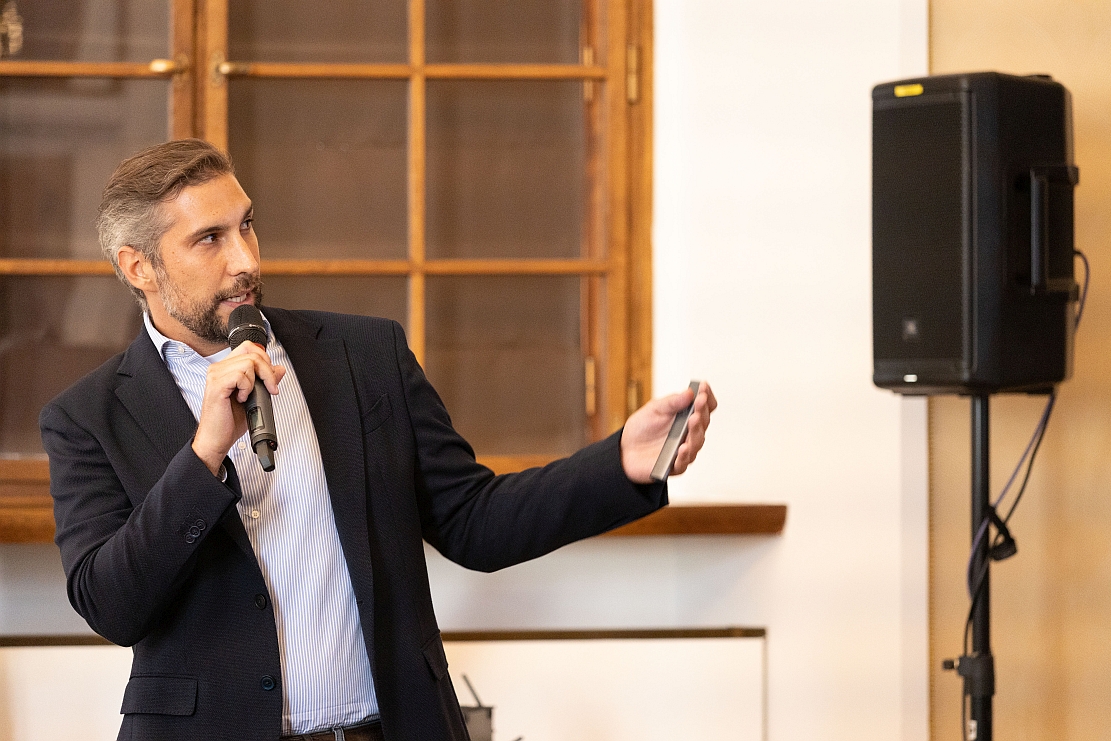
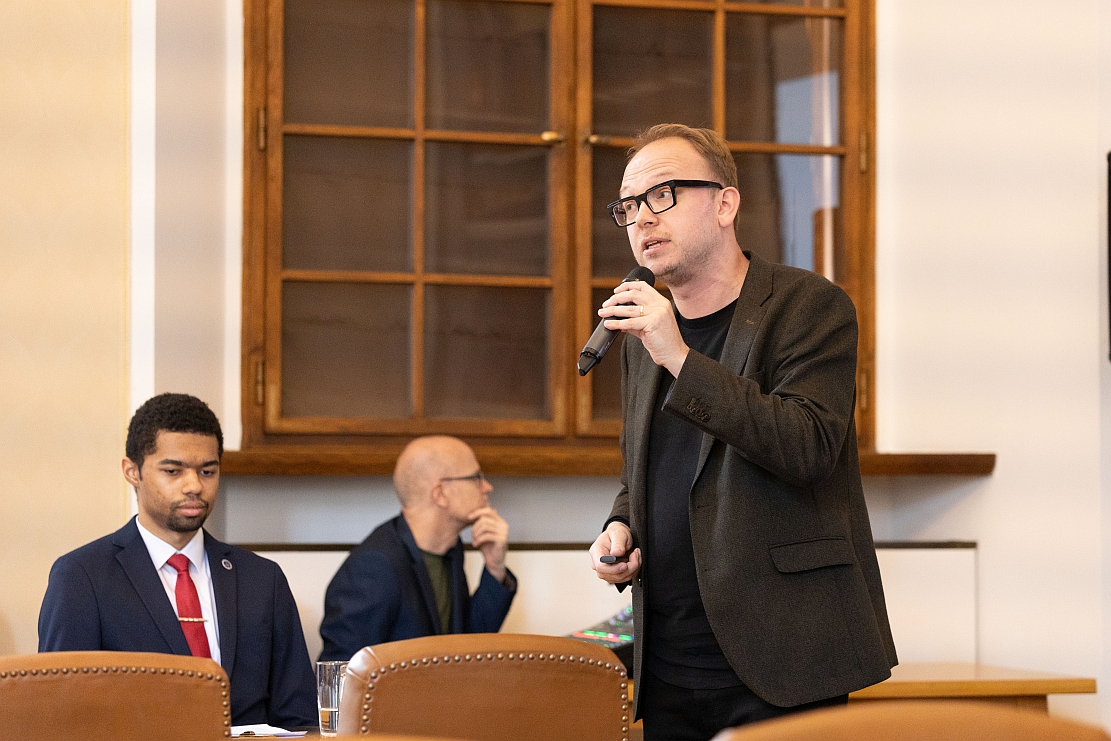
Stefan Savic and Ondřej Homola (right) brought spark as well as additional street cred as experienced investors.
In this sense, his presentation differed from other invited speakers, Ondřej Homola, the founder of N1 Ventures and Stefan Savic, the CEO of LIFE BioCEEd, whose focus was more on how to eke out a space in the market as entrepreneurs and start-up founders, and/or how to successfully bring research results to the market, so that promising findings, for example in medicine, were not left by the wayside. But could be developed into available products capable of providing not only a return on investment but improving peoples’ lives.
Stefan Savic told Forum that at his fund, a lot of support came even at a fairly early stage:
“For us we receive a very large volume and it can be tough to assess what research is promising and we grew many projects from the start into a commercial phase, where there is a product at the end that gets onto the market. We have been doing this for 15 years and we are able to assess with a fair amount of accuracy if something has market potential or not. It is not only about technology and there are a lot of factors that can influence things: how saturated the market already is, if similar products are already out there and so on. Or there can be regulatory or insurance company hurdles. There are many aspects and we try to look at all of them.”
Ondřej Homola explained that when it came to start-ups there was never any better time than ‘Now’ so it was fitting that what followed were presentations by a recent medical school graduate, Anora Atakhanová and four current students, Samuel Kinský, Matyáš Michel, Petr Hedvábný and Pavel Ruzyak, who were at various stages of launching start-ups or building on original ideas.
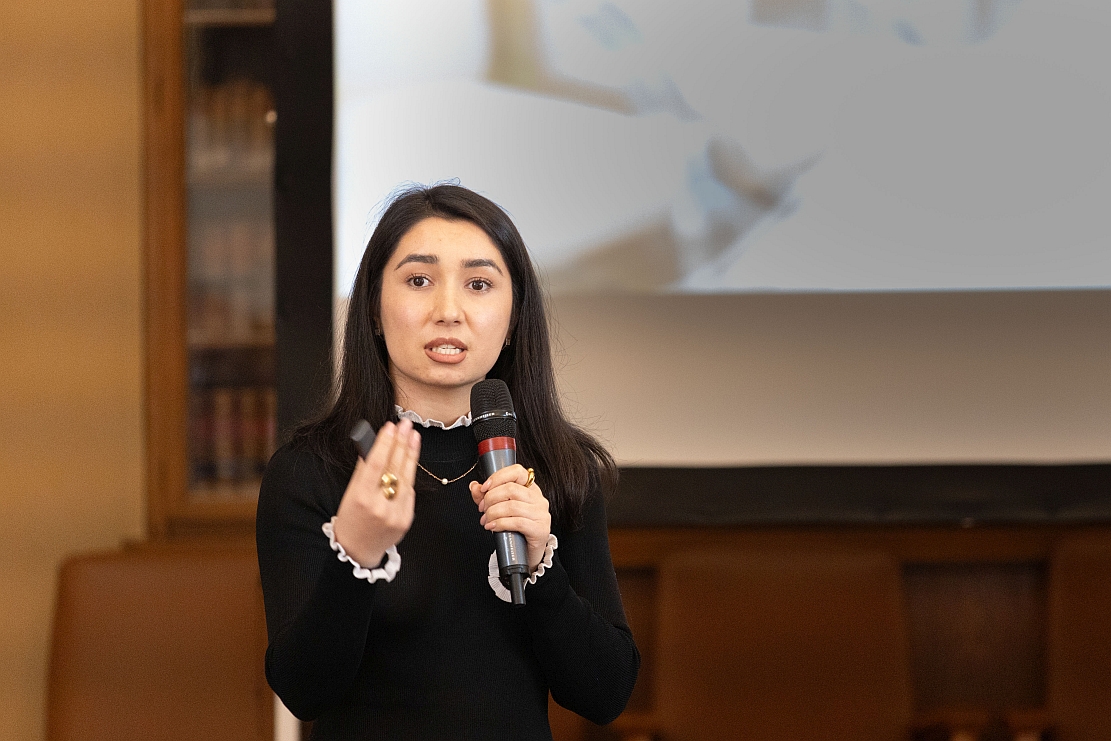
Start-up founder Anora Atakhanová stressed not to worry about what you didn't yet know: she says you'll pick things up along the way.
Anora Atakhanová launched a website called Gomed.cz facilitating quick access to doctors or medical facilities, also using an AI-driven triage system.
Samuel Kinský, from the Third Faculty of Medicine, is the founder of Yubetsu, using advanced AI to help researchers parse large volumes of data and findings and articles.
Matyáš Michel of the Faculty of Arts, is the co-founder of Gamifit, an online system aimed at interlacing fitness with kids’ online activities, which was the crowd and impromptu jury favourite, while Pavel Ruzyak, a former film student and student at the Hussite Theological Faculty, is the man behind Filming in the Dark, hoping to design equipment to assist the blind and visually-impaired in the art of filmmaking.
Petr Hedbávný, a student at the Faculty of Social Sciences, meanwhile, is the man behind Imaglee, a game system aimed at breaking barriers, facilitating communication and stimulating logic and creativity. His card game’s core feature is that it can be used in countless ways with the possibility of a slew of different applications. It is useful in different settings, from summer camp to the classroom, from hospitals to retirement communities. He briefly discussed what set his game apart:
“These cards have a potential that is best tapped by Renaissance people: there are different kinds of people, those who like firm and set rulesets and those who like absolute creativity. Then there are different shades or mixes in between. It is the difference between open and closed systems. People who love creativity like open systems and each user can find what suits them. There are three ways of using our cards: from traditional-style games to newer ones, or even for games that players invent completely on their own. A friend of mine who tried them the first time said the cards weren’t a game at all but a tool for boosting communication, for getting people to share and communicate.”
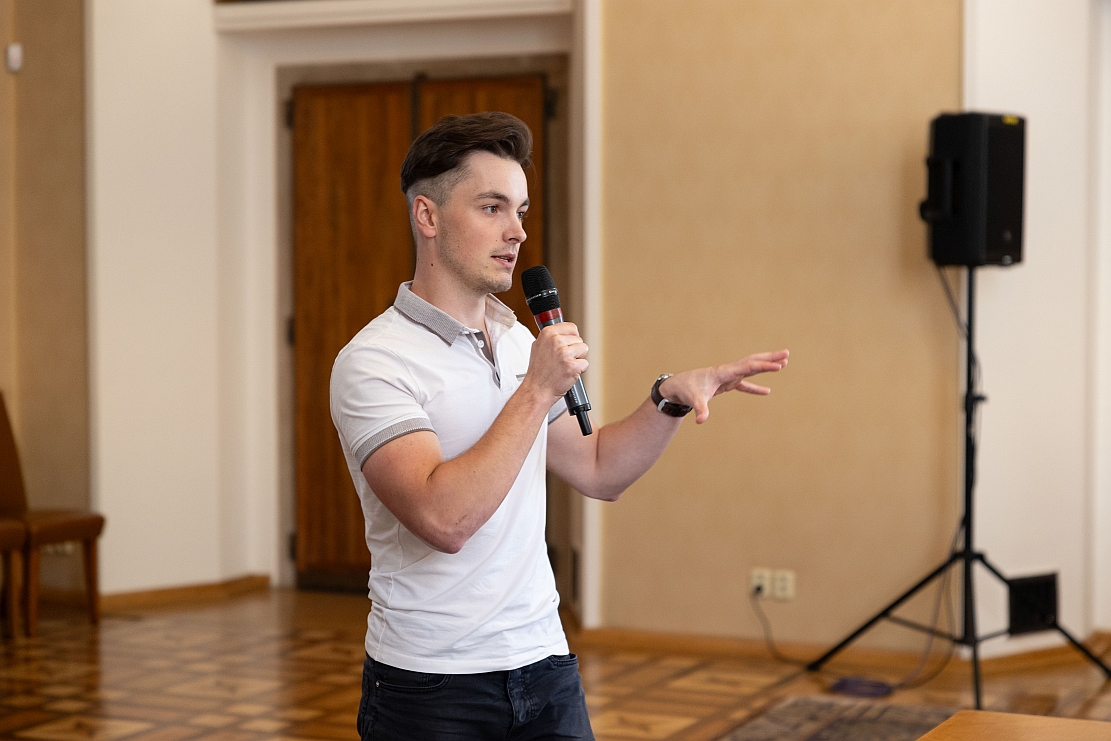

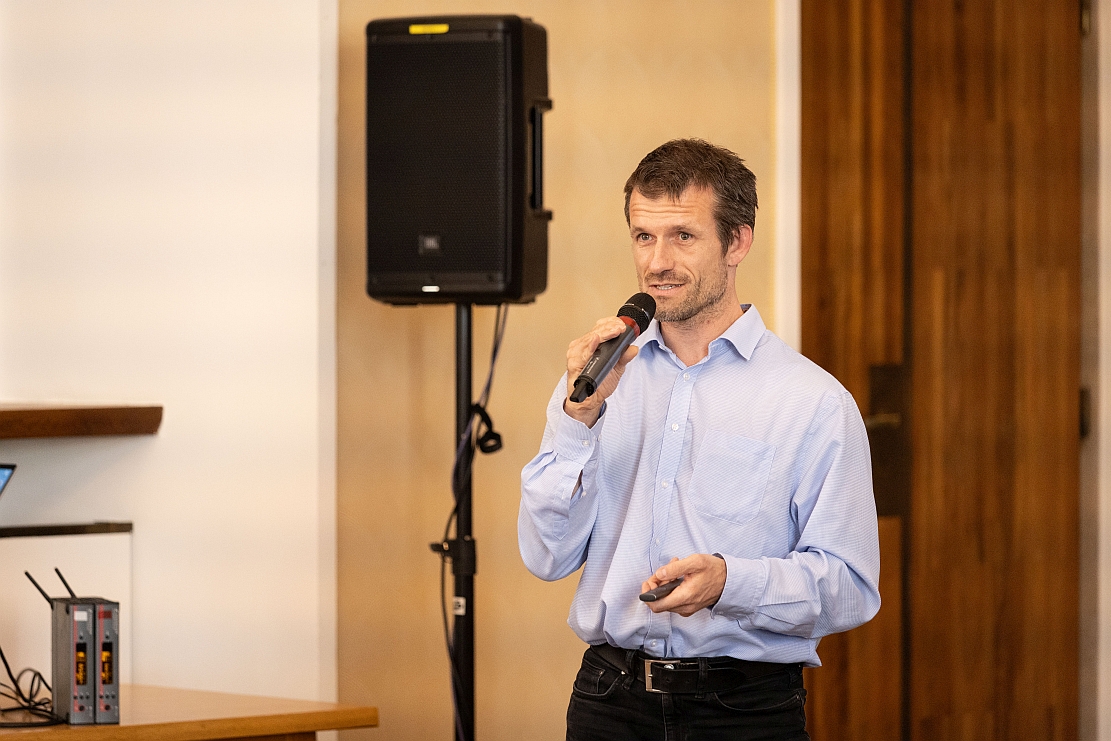
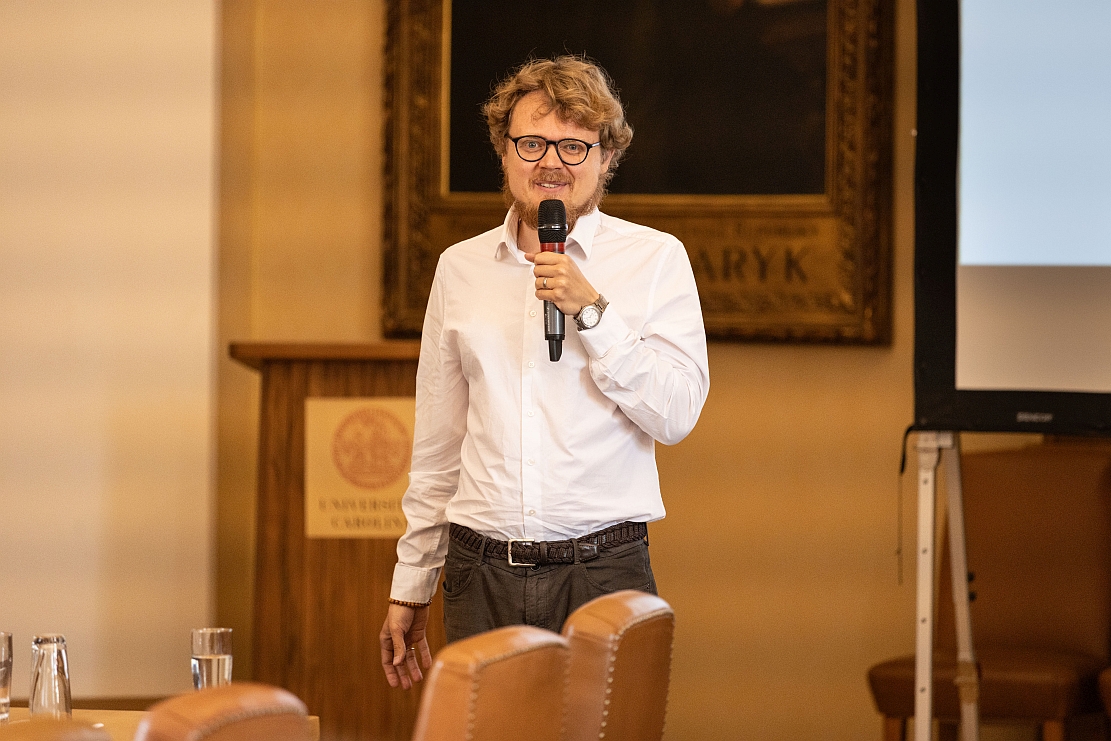
From top left to right: Gamifit's Matyáš Michel, Samuel Kinský founder of Yubetsu.cz. Bottom: Petr Hedvábný and Pavel Ruzyak.
The event at CU was organised with the help of CU’s Aleš Vlk (well-known not only as a vice-dean at the Faculty of Physical Education and Sport but as an experienced science populariser) and overseen by the Vice-Rector for the Conception and Quality of Education Jan Polák. The latter agreed that the event, the first of its kind, would likely return in some form in the future. He said he felt the feedback the students had received for their respective pitches had been very helpful and could serve them well in adding additional fixes or tweaks and alerting them to potential blind spots, when he spoke to Forum afterwards:
“When they were getting feedback from the panel, or jury, you could see they were paying close attention and I am convinced they will work on their projects. At home, they may add a couple changes, either in the way they present their pitch or even internal changes to the product. How else when they got such feedback from their peers? Distinguished experts such as the venture capitalists that we invited, who see dozens and dozens of pitches all the time. I am very happy that they accepted the invitation to see our university-based start-ups. That was the only criteria: that all the projects presented here today were connected to CU.”
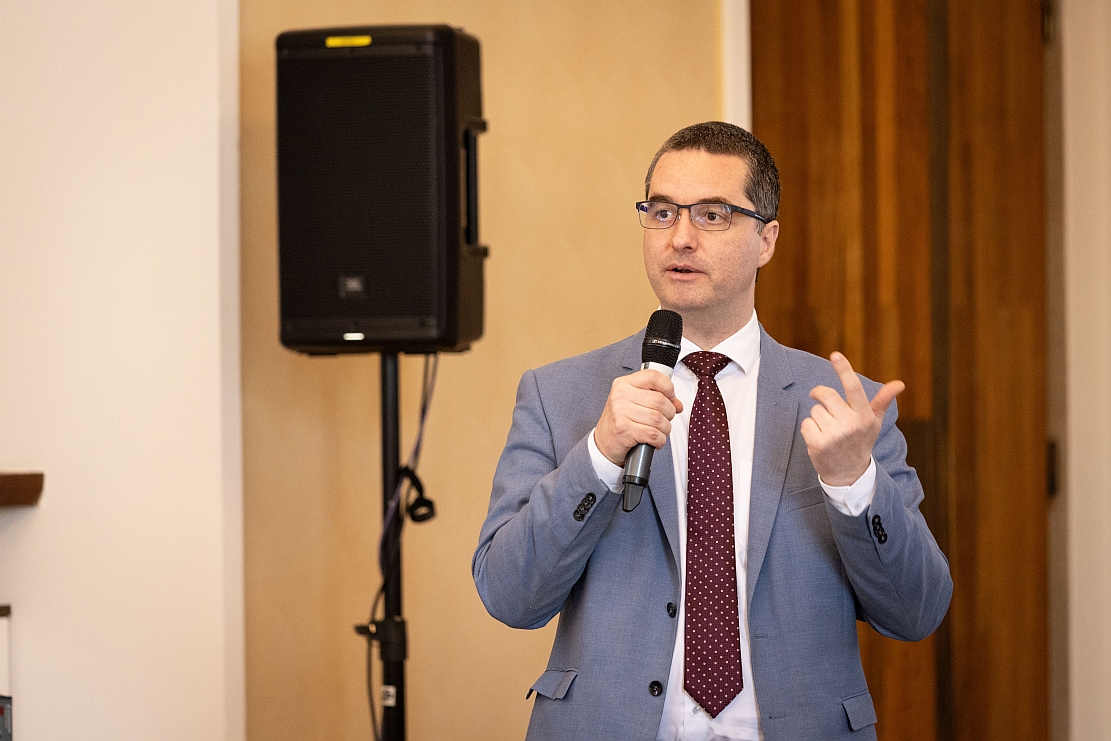
Vice-Rector Jan Polák at the MIT event at Charles University.


